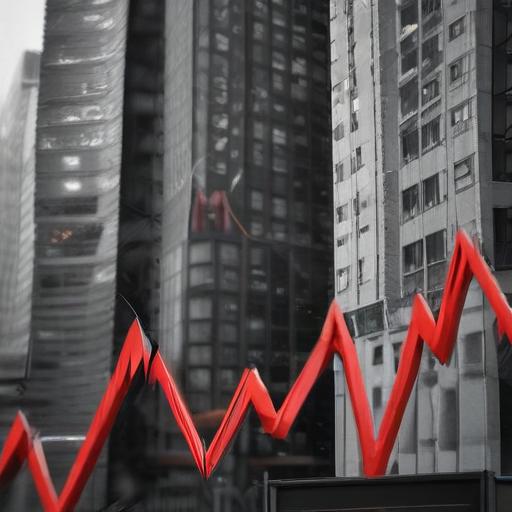Wall Street is experiencing renewed anxiety regarding American investments following a significant downgrade of the United States’ debt by Moody’s, which has changed its credit rating from the previously held AAA to a lower status. This downgrade marks the first such change since 1917 and reflects concerns over the escalating US debt levels and the lack of effective solutions from Washington regarding budget deficits.
The immediate market reaction was pronounced, with US stock futures experiencing notable declines: Dow futures dipped by 350 points, or 0.8%, while the S&P 500 and Nasdaq futures fell by 1% and 1.4%, respectively. In response to market uncertainties, investors began selling off US Treasuries, leading to a rise in the benchmark 10-year yield to 4.5%. In contrast, gold, often seen as a safe-haven asset, increased by 1.4%, reaching $3,232 an ounce.
Throughout the year, investors had faced a turbulent environment, beginning with optimism over President Trump’s business-friendly policies that previously resulted in stock market highs. However, concerns regarding his trade decisions led to significant sell-offs of American assets, a trend that saw a brief reversal until the latest downgrade.
In light of these developments, Treasury Secretary Scott Bessent attempted to reassure the market, contending that the downgrade was based on outdated information. Bessent, reflecting on past downgrades, emphasized that the current tax proposals aimed at economic growth could positively impact the debt-to-GDP ratio, which has risen dramatically from 92% in 2011 to 123% currently.
Analysts, however, warn that this downgrade could trigger further instability in financial markets. Chris Rupkey, chief economist at FwdBonds, noted the potential for historical parallels, referencing a significant market downturn following the first downgrade in 2011. Michael Peterson, CEO of the Peter Peterson Foundation, supported the call for fiscal responsibility, urging policymakers to heed this warning.
If sentiment shifts towards a “sell America” trend again, the ramifications could be severe, reminiscent of earlier market fluctuations where investors pulled out of US stocks and bonds in favor of gold and international equities. Such a shift would not only affect the stock market but could also amplify concerns surrounding the trade wars initiated under Trump’s administration, adding another layer of complexity to an already fragile economic landscape.
Despite the challenges, the resilience of the US economy and the government’s ongoing efforts to stimulate growth may provide hope for a turnaround, pointing to the robustness of market dynamics in the face of adversity.
